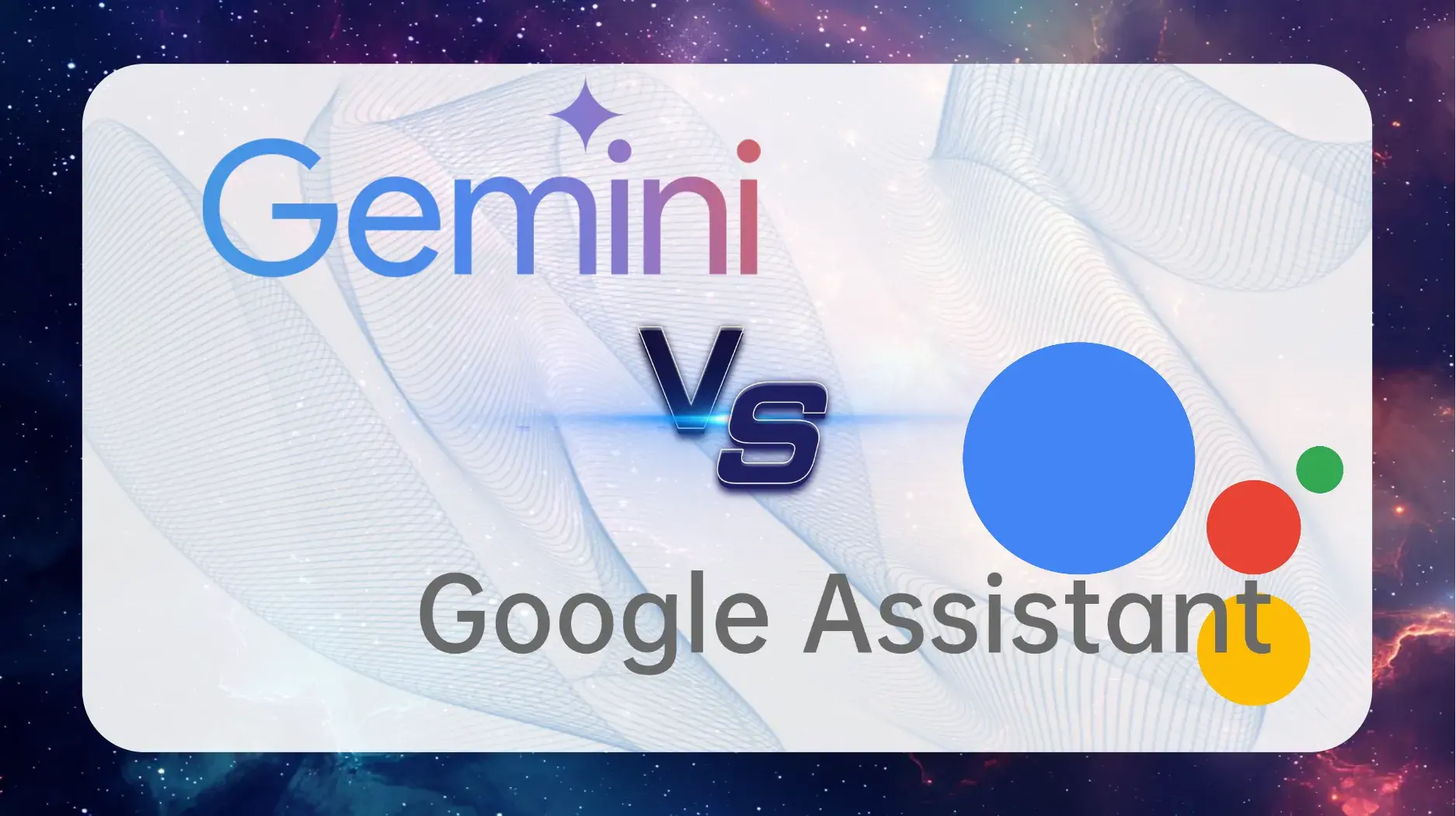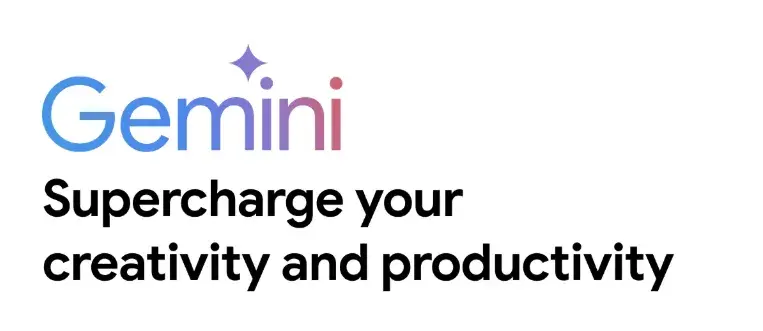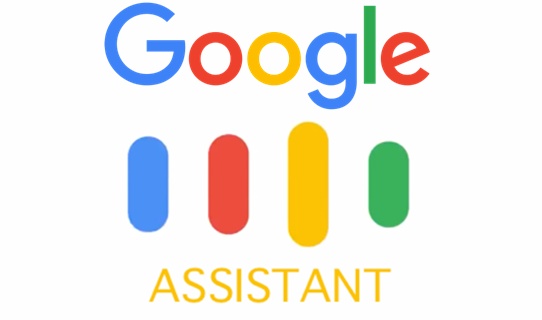Gemini vs Google Assistant : An in-Depth Comparison
An in-depth comparison of the differences: gemini vs google assistant! From features to performance insights, which is the best AI assistant for you?
— ChatGOT

According to the latest data from Statista, the global AI assistant market has reached $95 billion by 2025, which is a nearly 8-fold increase from 2020.
In this fiercely competitive market, Google has built two differentiated product matrices, Gemini and Google Assistant, by virtue of its technological accumulation.
But many users can't help but ask:
Why does Google need to operate two AI assistants simultaneously? What is the difference in their strategic positioning?
This article will reveal the answer for you with data and real tests.
A Comprehensive Analysis of Gemini vs Google Assistant
1、What is Gemini?
As the centerpiece of Google's 2025 strategy, the Gemini 2.0 series of models redefines the AI assistant through three revolutionary breakthroughs:
● Multi-Modal Superbrain : Supports 2 million token context windows and can simultaneously process mixed inputs, , including code, documents, and images (e.g., analyzing financial report PDFs with charts and graphs).
● Professional-Grade Productivity Tool : Provides 180,000 code completions per month, supports real-time debugging for 38 programming languages, and enhances developer efficiency by 300 percent.
● Personalized Learning Capability : Continuously tracks user habits through the “global memory” function to achieve in-depth adaptation to programming style preferences, writing tone, and more.

➢ Typical Application Scenarios :
○ Academic research (literature analysis and data visualization)
○ Software development (full-stack code generation and review)
○ Creative design (multimodal content creation)
➢ Usage Pain Points:
○ Mobile response latency is still as high as 4.5 seconds (iPhone 15 Pro measured)
○ Image generation resolution limited to 2048×2048 pixels (behind Midjourney v6)
2、What is Google Assistant?
Google Assistant is an assistant for the smart home that can also be used for everyday life matters. It has evolved from speech recognition technology to incorporate large-scale language models:
● Millisecond Response: Localized voice processing compresses wake-up speed to 0.3 seconds
● Deep Ecosystem Integration: Direct control of over 500 million smart devices, from Nest thermostats to Tesla's in-car system
● Privacy-First Design: Sensitive commands (e.g., home address) are handled entirely locally and not uploaded to the cloud

➢ Core Value Embodiment:
○ Voice control of smart home (“dim living room lights to 30%”)
○ Multi-device task collaboration (cell phone schedule synchronization to in-car navigation)
○ Instant life services (restaurant reservations and route planning)
➢ Usage Pain Points:
○ Complex commands require repeated corrections (e.g. “Make a hairdresser's appointment next Friday at 10am, with parking available”)
○ Cross-application operation relies on IFTTT (high threshold for building automated processes)
Gemini vs Google Assistant Ultimate Comparison
Google's two main AI products - Gemini and Google Assistant - each play very different roles and provide a unique experience for users.
➢ Product Position
● Gemini :Designed as a productivity tool, Gemini is a generative AI designed to help users solve complex problems. Its main functions include content generation and complex problem solving, which lends itself to scenarios such as office, education, and creative writing.
● Google Assistant: On the other hand, Google Assistant is positioned as a life service platform. It is a retrieval AI that is mainly used to execute commands, which can be used to improve user convenience through device control and instant services at home, on the go, and in daily life.
➢ Comparison of Core Dimensions at a Glance
Dimension | Google Gemini | Google Assistant |
Main Function | Content generation/Complex problem | Device control/Instant services |
Interaction Mode | Text-based + multi-modal input | Voice-priority + quick commands |
Applicable Scene | Office/Education/Creation | Home/Travel/Daily life |
Data Privacy | Enterprise-grade encryption | Localized processing + anonymous |
Device Compatibility | Cross-platform API access | Deep integration with Google |
➢ Comparison of Interaction Experience
Dimension | Gemini | Assistant |
Input Method | Text/Image/File | Voice (90% of scenarios) + Text |
Response Speed | 2-10 seconds (depends on task complexity) | 0.5-2 seconds |
Conversation Depth | Supports 20+ rounds of follow-up | Typically 1-3 round simple interactions |
➢ Data Highlights
● Gemini's processing efficiency in programming scenarios is 2.7 times higher than traditional IDEs
● Assistant's speech recognition accuracy is 98.6%, 5 percentage points ahead of the industry average
A Guide to Choosing Gemini vs Google Assistant
➢ Prioritize the Three Main Scenarios for Gemini:
Technical creators: When you need to generate complete Python scripts or debug Java programs, the amount of code completion is equivalent to 90 Copilot free accounts.
Academic researchers: Upload 100MB PDF papers, complete the core viewpoint refining and reference tracing in 30 seconds.
Business analysts: Automatically compare the differences among Excel tables, generate dynamic data visualization reports.
➢ Stick to The Classic Needs of Assistant:
Smart home users: Control whole-house devices in one sentence (supports over 7,000 smart product protocols)
Mobile office workers: Create meeting schedules by voice and synchronize to Gmail/Outlook.
Multi-device holders: Seamless command delivery from phone-watch-car system.
Future Trends
Google's dual assistant strategy reveals a key trend: AI is evolving from a single-function tool to a scenario-based intelligence.
For ordinary users, Google Assistant remains the cornerstone of smart life, simplifying daily affairs and improving life efficiency.
And for those pioneers pursuing productivity breakthroughs, Gemini 2.0 will open up a whole new dimension of creativity, providing the ability to solve complex problems efficiently.
Meanwhile, for tech enthusiasts pursuing the ultimate experience, ChatGOT 's Model Aggregation Platform may be the ultimate form of the next-generation AI assistant.
By integrating multiple AI capabilities into one platform, ChatGOT not only expands application scenarios, but also meets users' expectations for personalized and comprehensive services.
Under this model, users will be able to interact with AI more intuitively and efficiently, releasing the full potential of AI.